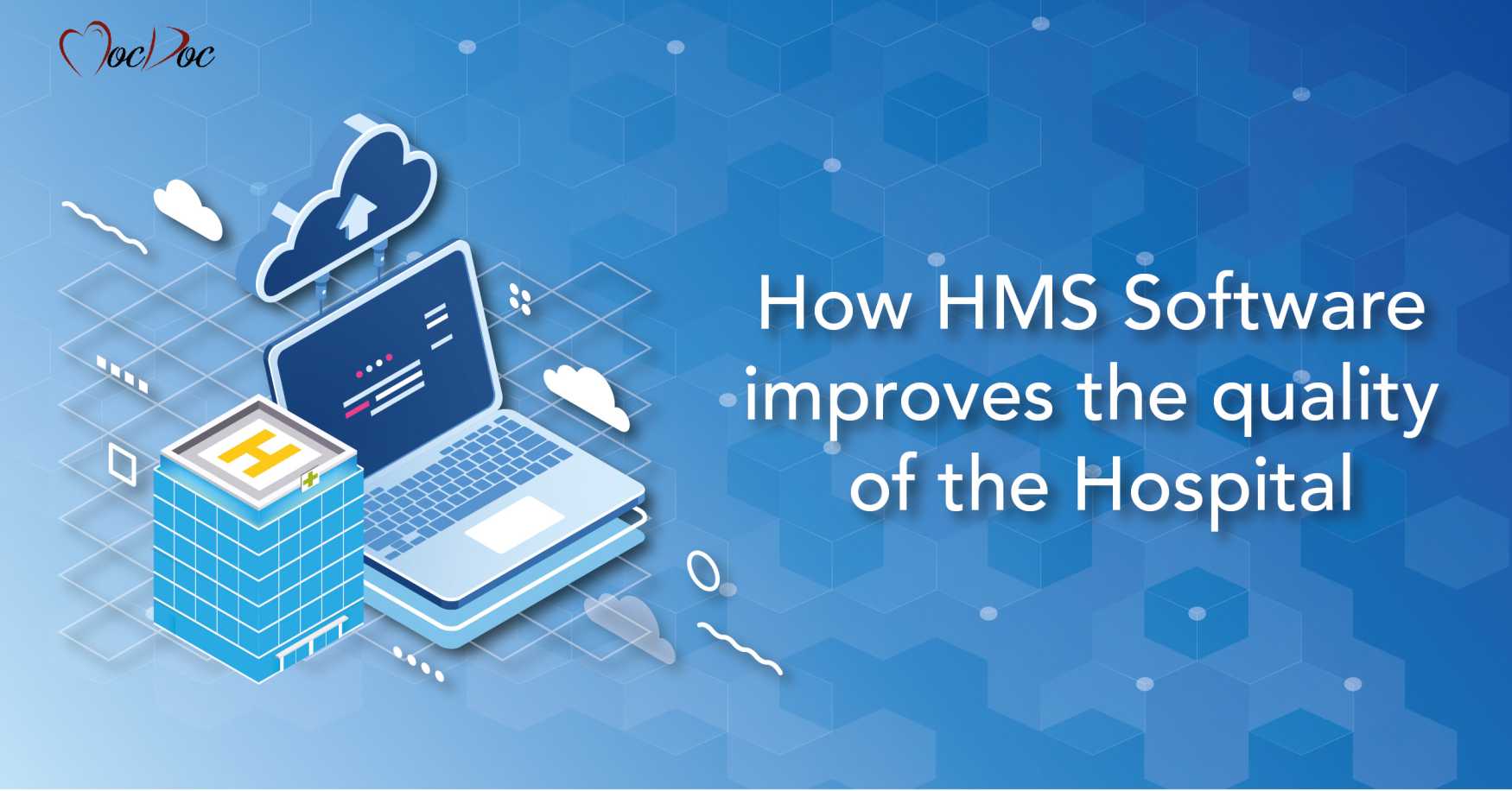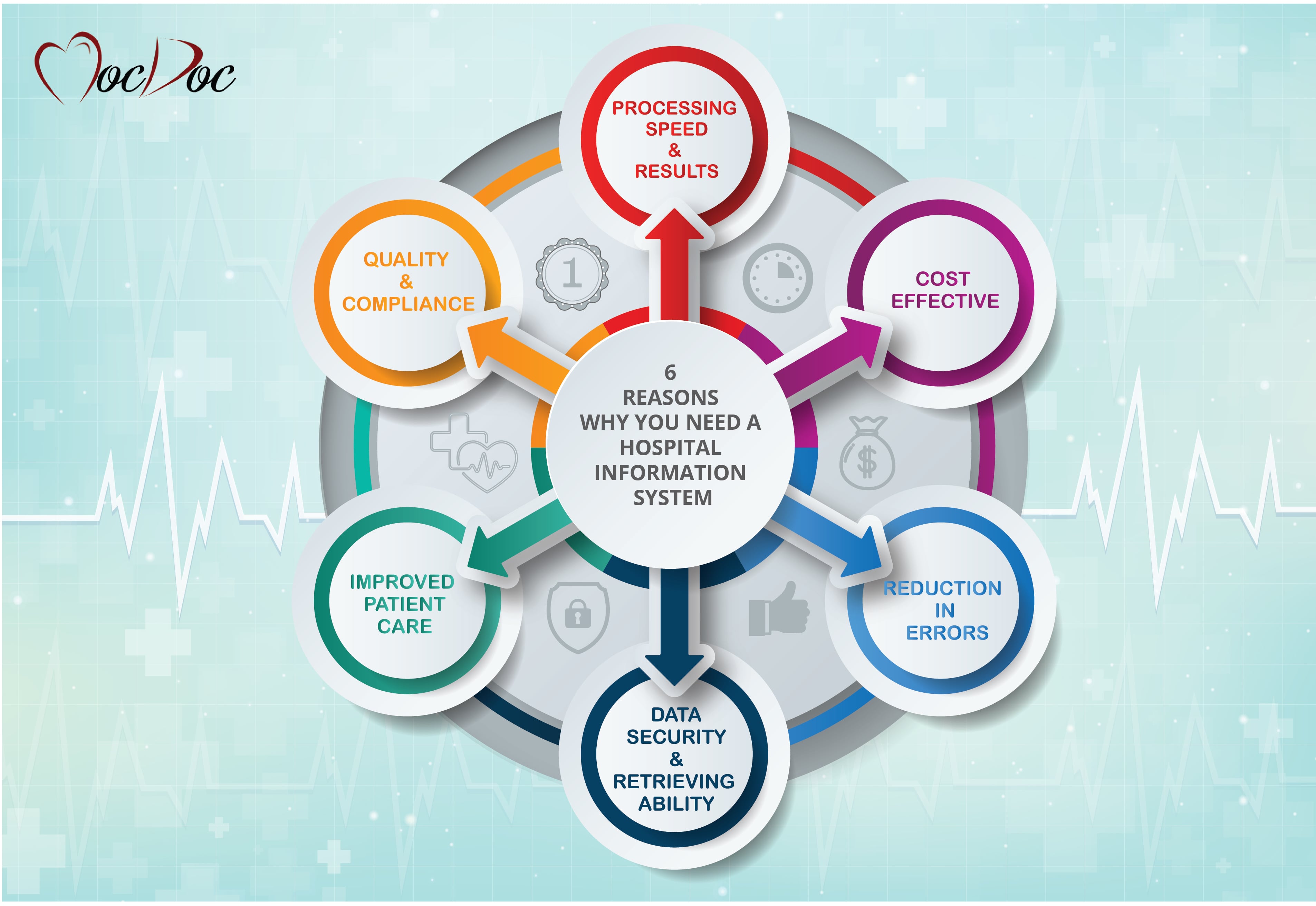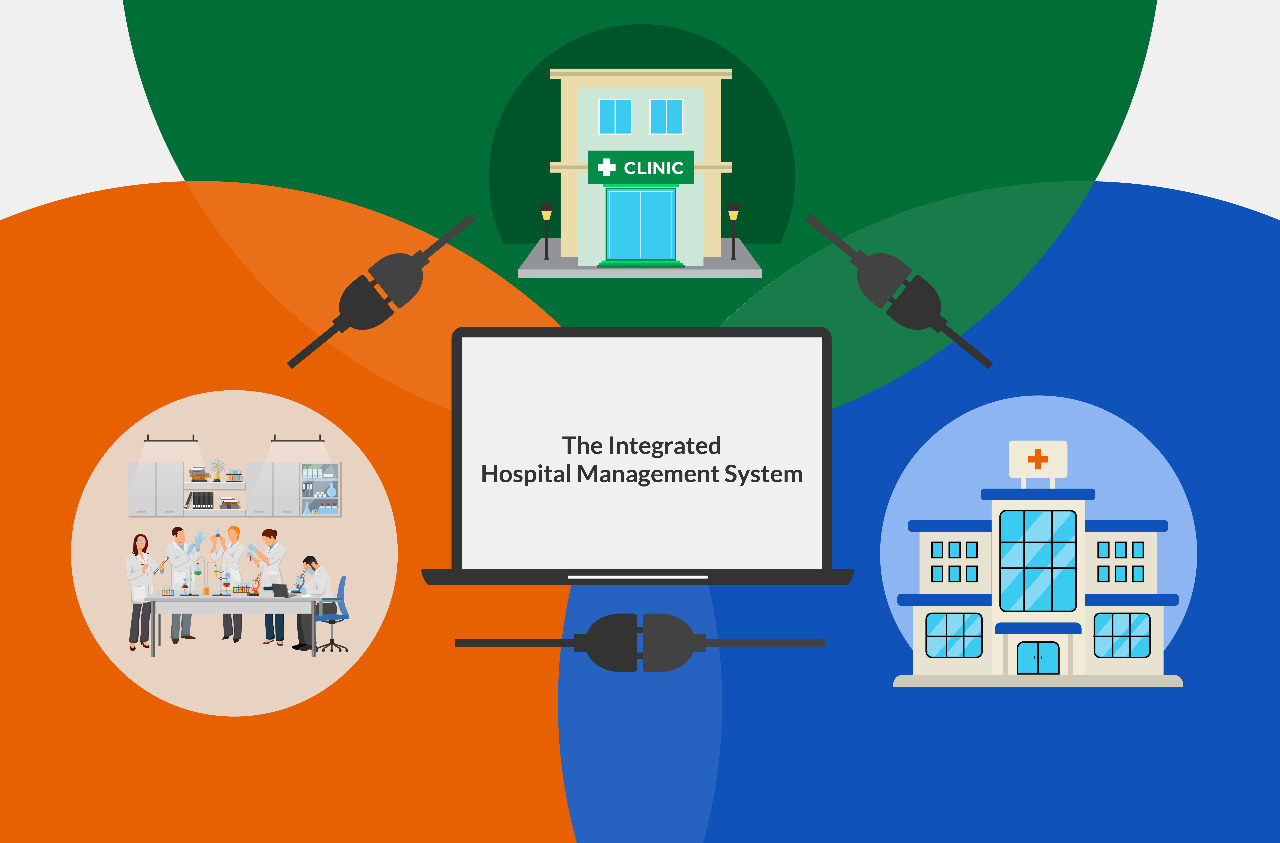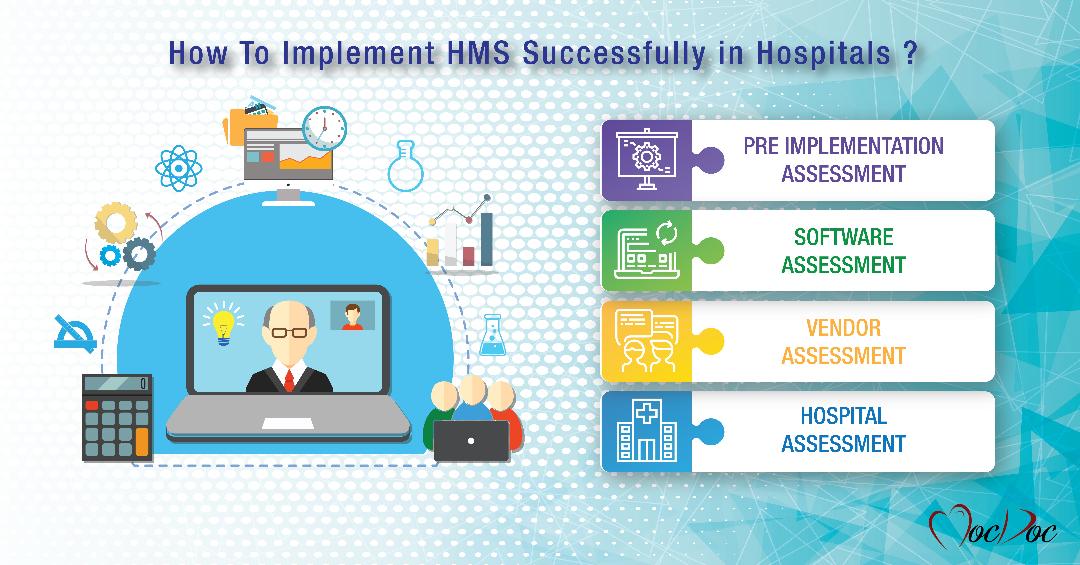MocDoc's Offerings
Why your HMS should include Electronic Medical Records (EMR)
Published By
Sanjana
2018111510:26:42
Category HMS
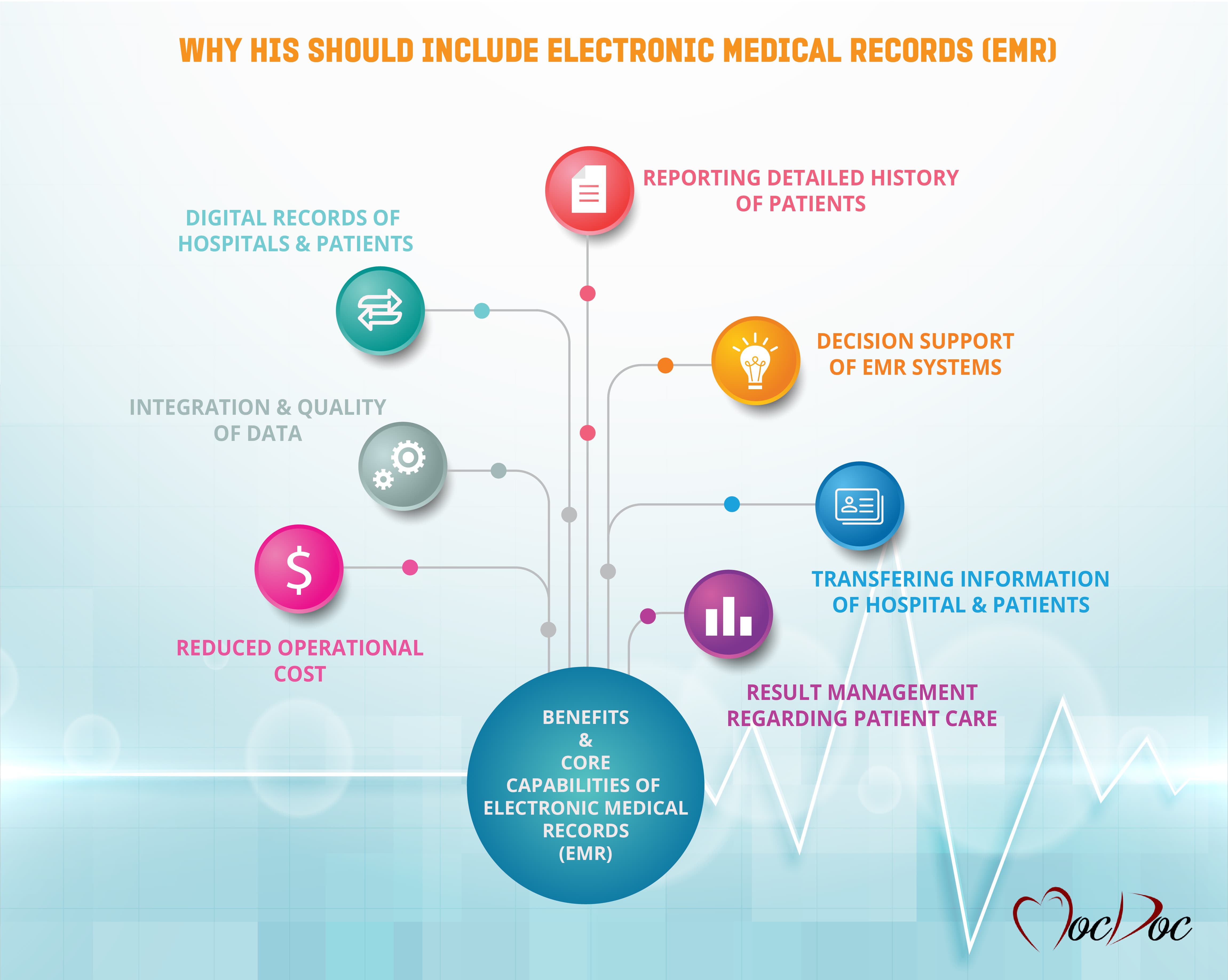
HMS covers three aspects of managing the hospital; they are Operational, Financial, and Clinical Aspects. If you look at the Doctor Management System, most of the software covers only operational and financial aspects like billing, inventory management, patient registration, scheduling, and workflow management. When evaluating HMS software, hospitals give much importance to operational and financial aspects and less importance to clinical records.
This blog discusses the importance of focusing on clinical records, otherwise known as Electronic Medical Records (EMR) in HMS.
What is EMR?
EMR is called Electronic Medical Records (EMR), which include information regarding the patient's medical history and treatment as discrete medical practices possess them.
When considering individual patients, the EMR will include information like patient contact information (emergency contact), physician orders, allergies, insurance, and other billing information, surgical notes on various medical progress, prescriptions, vitals like weight, height, body temperature, BMI (Body Mass Index), etc., release information forms, medical facility appointments on past and future, treatment plans and Discharge summaries, etc.
EMR constitutes different characteristics considering the medical practices, which include their functioning system to all other medical care procedures.
Apart from the benefits of the software platform, the Electronic Medical Record Systems also provides much other prominent information for care.
Coordination procedures connecting reception information and transfer departments, the software, personal use rules of the organizations, training, and education established plans are some of the well-established components of the Electronic Medical Record System.
Benefits of EMR for the Medical Practice
Below are some of the advantages of Electronic Medical Records to Medical Practices.
- Capable of quickly transferring patient information from one department to the other.
- The digital record environment helps to save much space.
- Through EMR, you can quickly enhance the number of patients for improved productivity and workflow of the patients daily.
- Medical practice with reduced errors leads to a vast improvement in patient care and result management.
- The operational cost is much reduced with EMR, especially for expenses made for overtime labor and transcription services.
- With EMR, electronic medical records can be customized and are scalable.
- The capability of providing advanced clinical documentation and e-prescribing.
- The efficient and accurate process of billing with their advanced healthcare practices.
What Benefits does EMR provide for the Patients?
- Improvement in Patient Treatment and other Diagnoses of diseases.
- Rapid decision-making responses and patient care from different medical professionals assigned to individual patients. No chances for significant errors in a patient health record.
What are the Essential Core Capabilities of the EHR?
The Electronic Medical System indulges seven different core capabilities, namely.
Health Information and Data:
With EHR, you can quickly access essential information about the patients, their allergies, diagnosis of their diseases, medications, lab test results, etc., which provides a clear idea for the custodian or minder to decide on the treatments promptly.
Result Management:
People who take care of the patients are provided with multiple settings regarding patient care. This will undoubtedly improve the effectiveness of the care and safety of the patients reliably through quick access to past and new test results.
Decision Support:
The computerized EMR system makes use of Prompts, reminders, and alerts for various benefits like providing complementary clinical practices with improved compliances, possibilities of regular screenings, and capability of taking other vital methods, natural treatment, and diagnosis and also helps to identify the possible interaction of the drugs, etc. precisely.
Electronic Connectivity and Communication:
Improved care continuity, enhanced timeliness of the treatment and diagnosis of diseases, reduced events frequency, etc., are some of the critical benefits of the Electronic Medical System for secure, efficient, and accessible communication between patients and providers.
Patient Support:
The various tools provided for the patients, like easy access to their health records anytime, interactive health table and patient education, self-testing and home monitor methods, etc., help to keep their diabetes and other chronic diseases under control.
Reporting:
Electronic Medical System has plenty of advantages indulged in the HMS. One of the critical reasons 90% of clinicians choose EHR is their reduced human errors.
As a whole, EHR security needs a fine tune in case of the substance abuse records and terms of the behavioral actions. By doing so, they can calculate the patient's body conditions efficiently. E.g., if nurses and physicians have every minute detail regarding their patient's history at their fingertips, there might be no massive chances for critical care and emergency treatment.
The detailed history of the patients will help in finding a new healthcare provider through the patient's current health state and the medical record. They also support exchanging patient information with healthcare facilities if the patients have not requested them.
Integration
Electronic medical record (EMR) is not a standalone system. Instead, it is a complete ecosystem with several integrations, making it a holistic solution for the prevention, diagnosis, treatment, care, and management of medical conditions.
To learn more about the MocDoc Healthcare System.
Related Articles
How HMS improves the quality o...
Hospital Management Software is considered to..... Read more
6 Reasons Why You Need a Hospi...
Our present modern information system makes use of..... Read more
Why use an integrated hospital...
What is an integrated hospital management syste..... Read more
How to Implement HMS Successfu...
When compared to other industries, the healthcare ..... Read more
